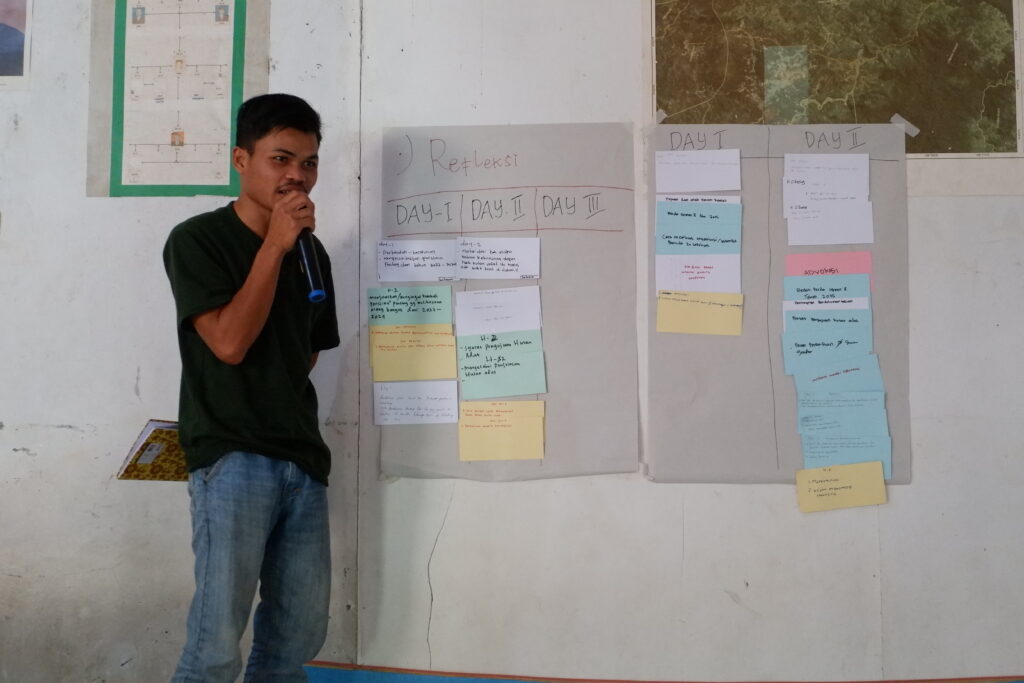Didin, a young man from Kasepuhan Cibarani, lives a simple life with his mother who is struggling economically. Didin's life story is not something extraordinary in the eyes of many people. However, his journey from working odd jobs to finding a way to contribute to his community reflects a profound change in him. Kasepuhan Cibarani itself is an indigenous community located in Cibarani Village, Cirinten District, Lebak Regency, Banten Province.
The owner of the Instagram account @didin_bukan_dilan graduated from high school in 2019, he was used to facing life's difficulties since school. The long distance to school and the difficulty of transportation costs forced him to find his own solution. The opportunity arose when he was in the 1st grade of high school, when a friend offered a sewing course. With the aim of increasing his income for transportation, Didin took the opportunity even though he had to ask permission from the school. After completing the course, he returned to focus on school until he graduated. Although sewing skills help occasionally, a high school diploma is not enough to open many doors to decent jobs.
Since graduating, Didin has spent several years working in various odd jobs, such as in a project stall or canteen, as a cargo truck conductor, etc. However, living in the city with low wages—around Rp1,600,000 per month—did not provide economic stability. In 2023, he decided to return to Kasepuhan Cibarani, a small village at the foot of the hills that had always been his home. At first, returning to the village felt like a dead end, but the decision turned out to open up opportunities he had never imagined.
In the village, Didin began to get involved in activities organized by RMI through the Estungkara Program, an initiative that encourages young people to get involved in the development of indigenous communities. His involvement slowly changed the way he thought about the social environment around him.
"The things that changed that I felt after getting mentoring and getting involved in many activities with RMI. Such as concern for the social environment, more self-confidence, and starting to get attention and trust from the community, including the baris olot. Previously I felt ignored," said Didin.
Formulasi, the organization he formed, now has 60 young people and women involved in this effort. Didin also began to realize that the youth community in his village was not well organized, and that the great opportunity to utilize local potential was still untapped. On April 25, 2024, he and several friends founded Formulasi (Forum Pemuda Adat Asal Kasepuhan Cibarani) with a simple goal, namely to gather young people and women in the village to start utilizing what they have around them.
For Didin, this is a step to open up employment opportunities and ensure that local potential is not left unattended. In Formulasi, Didin is not only the founder, but also encourages other young people to be more solid and compact.
"One of the successes that I feel is that I can now encourage better, more solid youth unity, and my existence is more taken into account by traditional and community leaders," he said.
Didin also joined the Kawal Forum, a forum for indigenous youth from various Kasepuhan in Lebak which helped broaden his insight into indigenous issues and forest management.
"In this forum, I can find friends who are on the same page and have the same thoughts, I can network and discuss with other friends," he added.
Although Formulasi is already running, Didin realizes that there are still many challenges to be faced, especially in terms of organizational management and internal conflicts. However, Didin's awareness of the importance of the sustainability of his community and the utilization of local potential continues to drive him to keep fighting.
"My hope for the future is that I can create jobs from local potential and support the organization as part of preserving the Kasepuhan culture for young people," said Didin optimistically.
The biggest change in Didin was not material success, but rather a change in his mindset—from someone who worked for himself to someone who began to care about the community and the future of Kasepuhan Cibarani. Now, Didin is no longer a young man who feels left out, but an important part of the change in his hometown.


